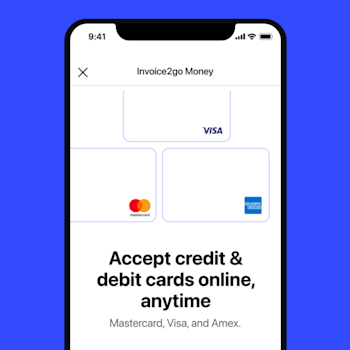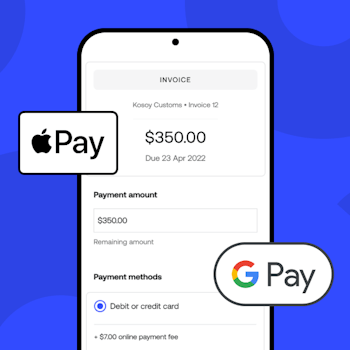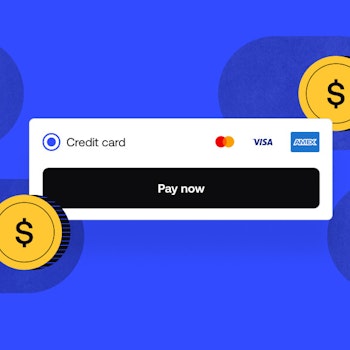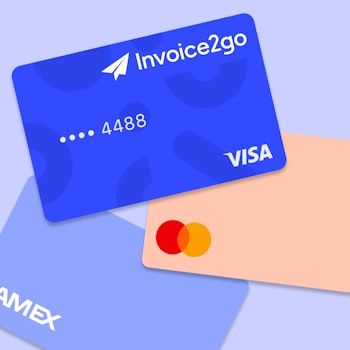
Small Business Spirit: Peggy Hannis, Freelance American Sign Language Interpreter
Over the past few decades, life for Deaf and hard-of-hearing communities has changed dramatically. Policies like the Americans with Disabilities Act (ADA) and new technology have opened doors to vast new possibilities for employment, education, and meaningful connection.
Many schools and hospitals now offer American Sign Language (ASL) interpretation services, enabling greater access to education and healthcare. With email, texting, and social media now primary means of communication, there are more ways than ever for Deaf people to connect, build community, and independently do tasks many of us may take for granted – like ordering delivery or disputing a bill.
However, despite many steps forward, serious challenges remain. According to the National Deaf Center, Deaf and hard-of-hearing people face significantly higher unemployment rates and make $15,000 less per year on average than their hearing counterparts. Even with more laws protecting them, overall employment opportunities remain fewer.
In addition, because many schools and universities lack adequate support for these communities, there’s a persistent education gap. The impact of the disparities in employment and education places these communities at a higher risk of encountering financial and mental health difficulties during their lifetimes.
Still, there are allies offering support and promoting equality. Meet Peggy Hannis, a New Jersey-based freelance ASL interpreter and customer of Invoice2go, a Bill.com company. Peggy’s dedicated her career to serving Deaf and hard-of-hearing individuals, primarily in mental health and medical settings.
We recently caught up with her over Zoom to chat about how she turned her passion for sign language into a meaningful career. We also talked about how she overcomes challenges in COVID times, stands up for herself and those she interprets for – and enjoys her most fulfilling moments at work.
Tell us about your background. How did you begin your career as an interpreter and start your freelance business?
Back in 1978, I was 18 and working with developmentally disabled children. It was a State of New Jersey job, and they sent me to a sign language class to enhance my communication with the students. That was my first taste of learning sign language – and I just loved it.
I started taking sign language classes wherever I could find them. Eventually, I learned about an interpreter training program at a local college. It never dawned on me that I could make interpreting my career until that point, and I was really excited.
I spent the first six or seven years of my interpreting career at various schools providing services for deaf students. When I got laid off in 1993 due to budget restraints, I decided to go full freelance. At the time, the Americans with Disabilities Act was revving up, and places that never had to provide interpreting suddenly had to do so. So, I never spent money on advertising because work was plentiful and I got multiple calls a day for different jobs. When I couldn't do them, I passed them to other interpreters.
There were corporate interpreting opportunities at big companies like AT&T and Prudential. I worked in corporations, healthcare, schools, and even at places where politicians were speaking. Little by little, I honed my practice down to primarily medical and mental health interpreting. I’ve interpreted at every hospital within a 70-mile radius of where I live. In one week, I could be at six different hospitals!
What drew you to mental health and medical interpreting?
I've always felt drawn to helping and this type of work, and I’ve always had special populations in my life. Since 2006, I’ve worked part-time at a hospital in northern New Jersey, working with a program that provides mental health services for Deaf people. We have group homes, other residences, and a day program. So there are many different types of interpreting that I do here.
Some people are born helpers. You have to be careful with that because in interpreting, you have to maintain a hard boundary about your own opinions and focus on facilitating communication for the person you’re working with. It's unethical to take over the situation based on your own views.
However, I like that I get to do some advocacy. After 36 years in this career, I understand the needs of people who are hard of hearing. I can share information about relevant programs, refer them to useful resources, or offer helpful tips when appropriate.

What do you find most satisfying in your work as an interpreter?
The best is when communication between the doctor and patient happens so smoothly, nobody even really notices an interpreter is helping – that's incredibly satisfying.
For example, I was interpreting for a person who had a complicated thyroid condition. At first, she was scared and didn't know what was happening. She thought maybe it was something terrible because the doctor was explaining things intensely. And I nailed it. The person I was interpreting for quickly became visibly calmer and knew what she needed to do next. The doctor also felt confident that the patient understood.
When both parties are completely satisfied with the communication, I feel good about my work. That understanding would never have happened in that appointment unless it was interpreted clearly in the language the person needed.
What are some of the biggest challenges you face in running your own business?
The last two years have been challenging with COVID because I primarily work in healthcare settings. When COVID is high, work is really slow. If a hospital is code red, they don't allow interpreters to come in. COVID has also been a challenge because we have to wear masks. Sign language requires seeing the face because that’s where grammar is shown. Companies are coming up with clear masks, but none of them are perfect – they still get fogged up and can be very uncomfortable.
Another challenge is that sometimes people don't understand interpreting and think they can dictate how the interpreter functions on assignment. For example, I was hired to interpret for a doctor giving a lecture on a specific type of surgery. Typically at these events, a deaf person sits in the front where they can see the lecturer and me in one glance. However, this doctor wanted the entire stage for himself. He told me I could not stand in front with him and would have to take those who were hard of hearing to the back of the auditorium.
I informed him that the audience needed to be able to see both of us simultaneously. However, he continued to push back, saying that I would distract hearing audience members. It went on and on – and I kept repeating my point. In the end, I stayed up in the front and I did my interpreting. Afterward, the doctor came to me and said, “Wow, that was fantastic! I can't believe you can sign that fast.”
So, sometimes a person may try to dictate my role. And being of a certain age, I have to be careful. I’m very diplomatic and professional, but it’s harder to pull the brakes now if someone gets me going!
How has Invoice2go helped you in your freelance business?
When I first started interpreting years ago, it was all paper, pen, and snail-mail. I would write out three-part invoices with all the particulars and snail-mail them to the company. Then, I would get a paper check two or three months later. It’s hard to imagine now waiting three months to get paid, but that was normal then.
Now, I use Invoice2go when I freelance for a couple of agencies. When I arrive at a job, I have a confirmation from the agency with all the particulars. I create my freelance invoices with Invoice2go and enter those particulars. When the job is complete, I send the invoice before I even leave the parking lot and get paid much faster.
It's so easy for me to put in the agency and my hours – and Invoice2go automatically calculates my fee. I can take a picture of documents that need to be signed and easily add them to the invoice. It’s also helpful for me to see a list of all the unpaid invoices at a glance – that’s great for staying organized. Then, when I get paid, I just go through my list of outstanding invoices and mark them as paid.
It sounds like you've reached a great place with your business and career. What are some of your hopes and goals for the future?
Well, I'm 61. I've been working since I was 16 years old. I'm not looking to make any big changes, but I would like to wind things down a little over the next few years. I want to continue interpreting as long as possible because I love it. However, I’d like to be more selective about the work I choose.
I also love singing acapella, jazz, and blues. So for my future, I want more art, more music, and to get more sleep. I like the sound of that!
Related Articles

How to accept credit card payments on Invoice2go in 3 simple steps

Accept payments online via Apple Pay and Google Pay

Must-not-miss write-offs as you wrap up 2022 year-end finances

5 ways accepting credit and debit card payments helps your business stay resilient

4 easy ways to increase cash flow today

What is Small Business Saturday and why is it important?
The features and surprising benefits of a well-designed packing slip
